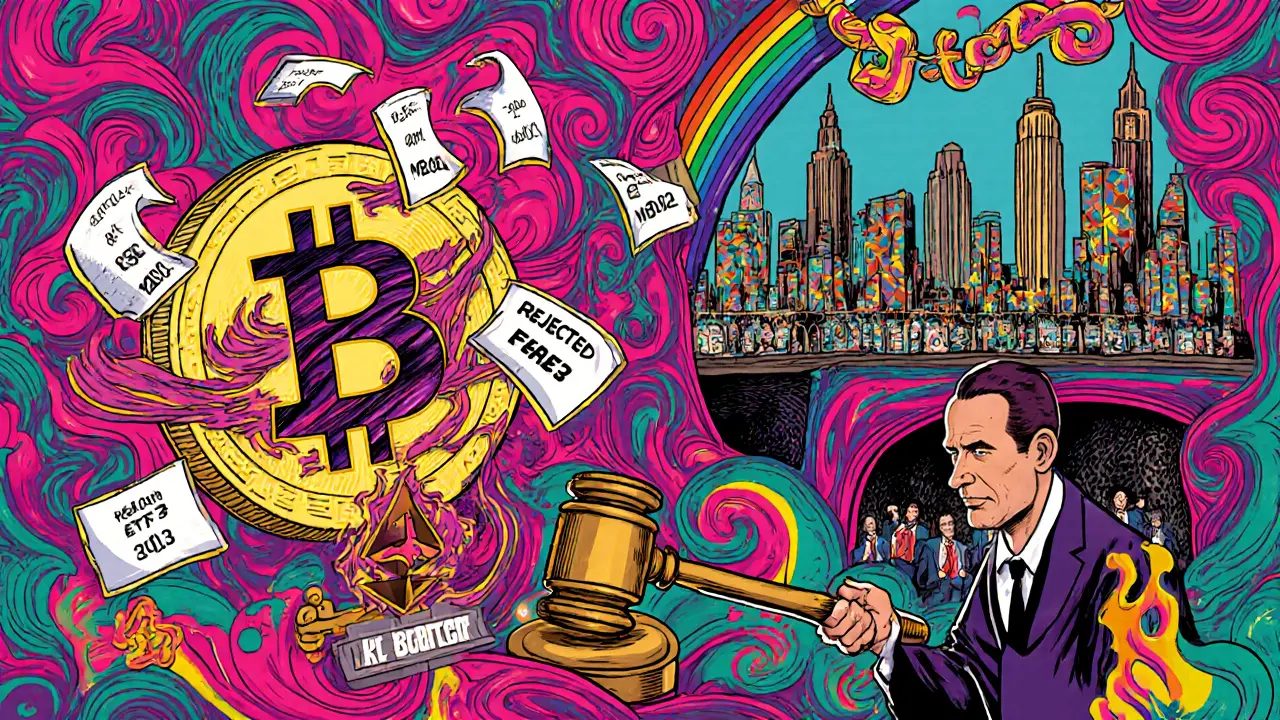SEC Crypto Approvals: What’s Approved, What’s Blocked, and What Comes Next
When you hear SEC crypto approvals, decisions made by the U.S. Securities and Exchange Commission that determine whether digital assets are treated as securities. Also known as crypto regulation by the SEC, these rulings control whether tokens can be traded legally on U.S. exchanges, if funds can launch crypto ETFs, and who gets fined for breaking the rules. This isn’t theoretical—it’s the reason some coins vanished from U.S. platforms and why Bitcoin ETFs finally launched in 2024 after years of delays.
The SEC enforcement, the agency’s actions against crypto firms accused of selling unregistered securities. Also known as crypto crackdown, it’s behind lawsuits against Binance, Coinbase, Kraken, and dozens of smaller projects. These aren’t random—they follow a pattern: if a token acts like a stock (people buy it expecting profit from others’ work), the SEC says it’s a security. That’s why tokenized real-world assets like tokenized treasuries, digital versions of government bonds issued on blockchain. Also known as RWA tokens, it’s one of the few areas the SEC hasn’t blocked—because they’re backed by actual assets with clear ownership. The same logic doesn’t apply to memecoins or unbacked utility tokens, which get shut down fast.
What’s approved? Only a handful of things. Bitcoin and Ethereum spot ETFs made it through after long legal battles. Some stablecoins like USDC operate under state licenses, but the SEC still says they’re risky. Crypto exchanges that register as broker-dealers can list certain assets, but only if they prove the tokens aren’t securities. Meanwhile, projects like RWA tokenization, turning real estate, bonds, or gold into blockchain-based digital shares. Also known as tokenized assets, it’s growing fast because it fits within existing financial laws—unlike most DeFi apps. That’s why BlackRock’s BUIDL fund and other institutional players are moving in while others get sued.
What’s blocked? Almost everything else. Airdrops that feel like investment pitches. Tokens tied to profit-sharing models. Platforms that let users earn interest on crypto without being licensed lenders. The SEC doesn’t care if you call it a "utility token"—if it looks like a security, it is one. That’s why projects like EKTA, RNBW, and LVM vanished from U.S. exchanges. No one’s getting a pass.
The real story isn’t about banning crypto—it’s about forcing it into old rules. The SEC isn’t against blockchain. It’s against unregulated financial activity. That’s why compliance isn’t optional anymore. Crypto businesses in the U.S. now need legal teams, KYC systems, and audit trails just to stay open. Even if you’re not in the U.S., if your project targets Americans, you’re in the crosshairs.
What you’ll find in the posts below are real cases of what happens when these rules hit the ground: the approved ETFs, the shut-down exchanges, the airdrops that turned out to be scams, and the tokenized assets that actually work. No fluff. Just what’s legal, what’s not, and why it matters to your wallet.
Bitcoin and Ethereum ETF Approvals in the US: What Changed and What It Means for Investors
Bitcoin and Ethereum ETFs are now a reality in the U.S., transforming how investors access crypto. With SEC approvals in 2024 and in-kind trading added in 2025, these products offer regulated, tax-efficient exposure to digital assets. Here's what you need to know about fees, performance, and what's next.
